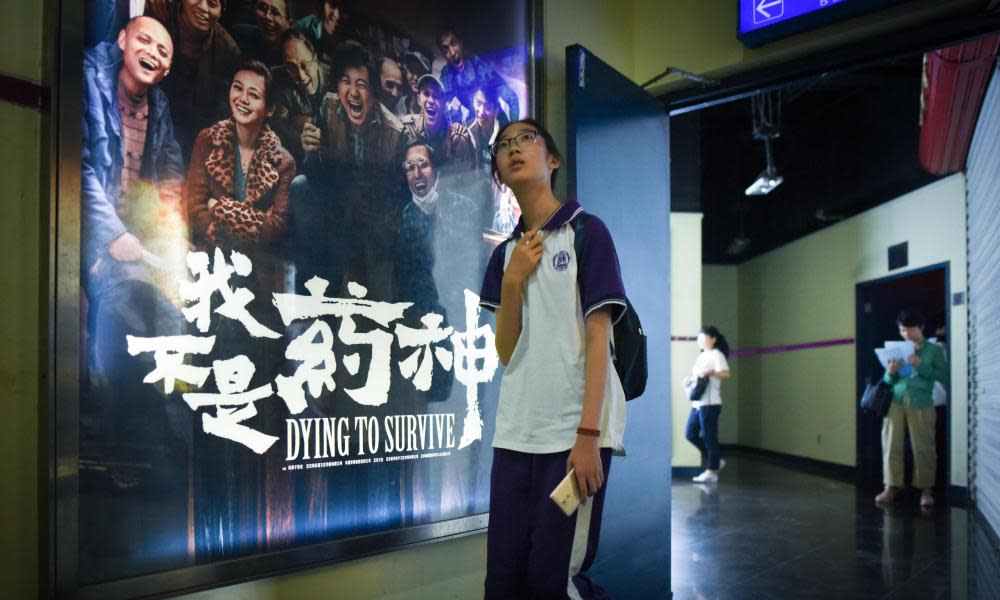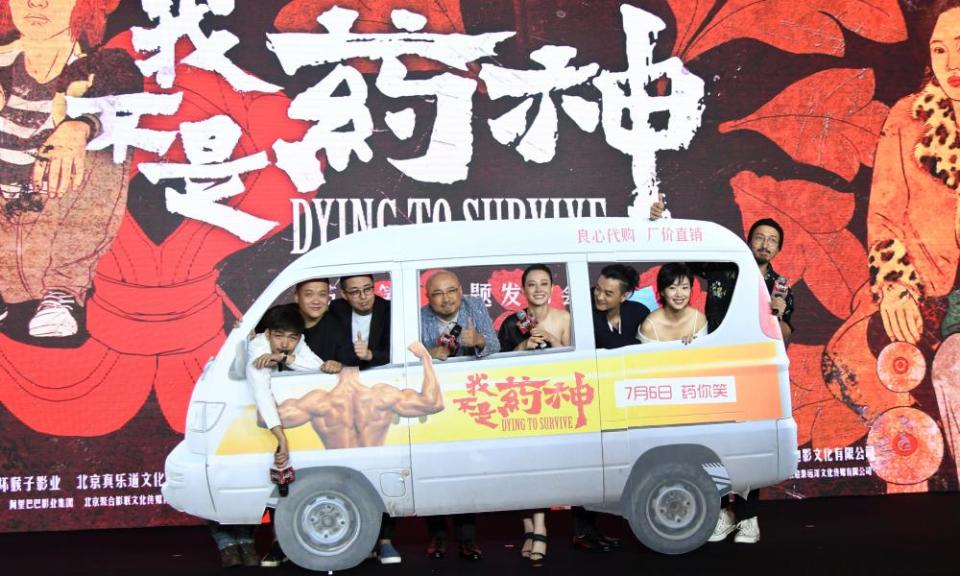Popular cancer drug film prompts China to speed up price cuts

In the film Dying to Survive, a peddler of fake health supplements in Shanghai comes across an unbeatable business proposition: selling unlicensed generic drugs from India to China’s booming population of cancer patients who cannot afford the approved drugs. When someone asks the businessman, Cheng Yong, if he wants to be a hero, he laughs. “I don’t want to be a saviour. I just want to make money.”
The relatively low-budget dark comedy has become one of the most popular films in China in years, bringing in almost 2.5bn yuan (about £285m) since its release on 5 July, which already makes it the sixth highest grossing film in China ever.
Based on the true story of a man who, after getting diagnosed with leukaemia, imported unapproved cheaper drugs for himself and other cancer patients, the film has prompted a national debate about the country’s healthcare system that has reached the top levels of the Chinese government.
On Wednesday, the Chinese premier, Li Keqiang, ordered regulators to speed up price cuts for cancer drugs, something the government has been trying to do for years.

“If there is one cancer patient in a family, that family will devote all their resources to them. Even the entire extended family will need to help,” Li said, according to Chinese state media. “Cancer has become the number one threat to people’s lives and health. We need to do whatever we can to save the patients and relieve their families’ burden. We need to solve this problem as soon as possible.”
Cancer has been the leading cause of death in China since 2010, accounting for more than a quarter of deaths in rural areas. China provides universal health insurance, but coverage is basic and many patients have to cover chronic illnesses like cancer out of their own pockets.
Many Chinese cancer patients have been importing and prepping their own drugs. Many have gone into debt paying for treatment. Last year, government data showed that 44% of families in poverty had been impoverished by an illness in the family.
The inspiration for Cheng Yong was a textiles trader from the eastern province of Jiangsu named Lu Yong, who was diagnosed with chronic myeloid leukaemia in 2002. He began importing a generic version of Glivec, patented by Novartis, for himself and other patients. He was arrested in 2013 for illegally distributing the unapproved drug, but was acquitted in 2015 after an outpouring of public support.
Lu’s lawyer, Gao Yupeng, says the film is helping to raise awareness of the issue of unaffordable cancer treatment.
In May, China removed import tariffs on cancer-related medication, and in May and June, China’s state council held meetings on ways to lower the prices of cancer drugs. In some provinces, such as Jiangsu, Glivec is now covered by the national insurance.
Authorities no longer prosecute sellers of unlicensed drugs if the amount is small and the drugs have not caused any serious side-effects, according to Gao, who has taken on other similar cases. “In the past you would be charged as long as you sold prohibited drugs. So authorities are making changes,” he said.
The film, labelled China’s Dallas Buyers Club by some, has also been hailed for its social realism and portrayal of Chinese society in all its contradictions. It features protests and clashes between ordinary citizens and law enforcement. Other characters include a pole dancer whose daughter is sick and a priest who hawks the contraband in his church.
“Among China’s many awful movies, this film stands out as vastly superior,” one reviewer said on the Chinese microblog Weibo. “It shows the struggles and humanity of ordinary people under unjustified laws, and the pain you feel but often can’t say aloud in those situations.”
Additional reporting by Wang Xueying

 Yahoo News
Yahoo News 
